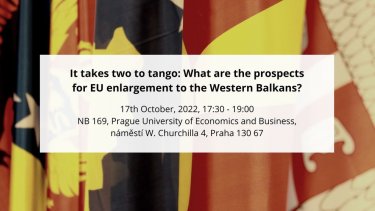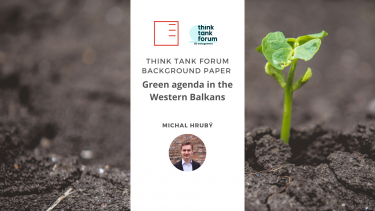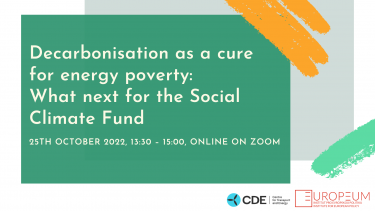Op-Ed | Subsidised fossil fuels are a major obstacle to solving the climate crisis. The Czech Republic and the world must confront it
One of the biggest obstacles to solving the climate crisis is fossil fuel subsidies. However, they have not received much attention in the Czech Republic. An Op-Ed on this topic was written by our Senior Research Fellow Kateřina Davidová.
Show more
SUMMARY OF EXPERIENCES WITH THE INVOLVEMENT OF CSOS IN V4 IN THE DECARBONISATION PROCESS
The project is focused on the examination of the role of non-governmental organizations in the process of decarbonization of coal regions in V4 countries (Czech Republic, Hungary, Poland, Slovakia). The aim of the project is to describe the best and worst practices of the individual processes for Serbia, who awaits the transformation of its energy mix, largely based on coal. The examined V4 countries have had a slightly different share of coal in their energy mix, while the largest one being in Poland and the second largest one in the Czech Republic, followed by Hungary and Slovakia. There are many similarities and differences in their takes on decarbonisation, thus providing different range of experiences.
Show more PDF

INVITATION | EU - Pacific Talks: Free and Open Indo-Pacific: Bold vision for bold players
We would like to invite you to the debate EU-Pacific Talks: Free and Open Indo-Pacific: Bold vision for bold players. The debate will take place online on Friday, December 16 at 11:00.
Show more
EUKI Report | Industrial decarbonisation policies in the EU
This report, written by Tatiana Mindekova, is the first part of the future publication for our project “Decarbonization of the Industrial Sector: Sustainable finance as an opportunity?“, which is funded by the European Climate Initiative. It offers an overview of the key climate policies of the European Union, with special attention paid to the heavy industry sector.
Show moreINVITATION | New Challenges in the Implementation of the EU Climate Goals | Czech EUKI Community Conference
We would like to invite you to a Czech EUKI Community Conference. The public panel discussion of the conference will take place on 9th November 2022, 13:00 - 14:15 at the House of the European Union, Jungmannova 745/24, 110 00 Nové Město, Prague, Czechia.
Show moreIt takes two to tango: What are the prospects for EU enlargement to the Western Balkans?
We would like to invite you to the debate "It takes two to tango: What are the prospects for EU enlargement to the Western Balkans?", which will take place on 17.10. at 17:30 on the premises of the University of Economics in Prague in room NB 169 (the Rector's meeting room). Address: Churchill 4, Prague 130 67.
Show more
Background paper Think Tank Forum | Green agenda in the Western Balkans
Researcher Michal Hrubý prepared a background paper on the Green Agenda in the Western Balkans in the framework of the Think Tank Forum held in the first half of October 2022. In the paper, he discusses the role of the Green Agenda itself and its future. Indeed, the so-called Green Deal is the cornerstone of the EU's climate agenda, and the Western Balkans has declared the importance of this agreement by signing the Green Agenda for the Western Balkans (GAWB) in 2011.
Show more PDFINVITATION: Decarbonisation as a cure for energy poverty: What next for the Social Climate Fund
We would like to invite you to a roundtable discussion on "Decarbonisation as a cure for energy poverty: What next for the Social Climate Fund" on 25th October 2022, 13:30 - 15:00, online on Zoom. The event is organised by the Centre for Transport and Energy and EUROPEUM Institute for European Policy.
Show more
ČRo: Giorgia Meloni is very likely to become Italy's new Prime Minister
As expected, Italians chose the right in the early elections. According to commentators, the winner of the election is clearly the Brothers of Italy party, whose leader Giorga Meloni has already announced that she is ready to govern. Our research associate Alexandr Lagazzi also analysed this topic for Český rozhlas.
Show more
INVITATION: Fair and sustainable future of transport and buildings: Outlook for the Czech Presidency
We would like to invite you to a roundtable on "Fair and sustainable future of transport and buildings: Outlook for the Czech Presidency" on 24 May 2022 at 2 pm via the ZOOM platform. The event is organised by Centre for Transport and Energy and EUROPEUM Institute for European Policy.
Show more
Staroměstské náměstí 4/1
Prague 1 - Staré Město
110 00
tel.: +420 212 246 552
email: europeum@europeum.org
https://www.europeum.org









